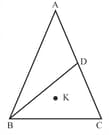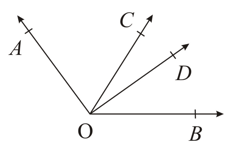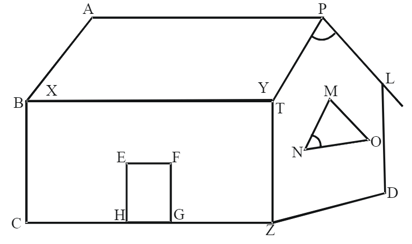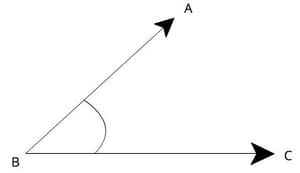Basics of Angles
Basics of Angles: Overview
This topic covers concepts, such as Angles, Arms or Sides of Angles, Vertex of Angles, Notation of Angles, Division of Regions by Angles into Three Parts, Interior of Angles, Boundary of Angles, Exterior of Angles, etc.
Important Questions on Basics of Angles
Explain that an angle divides the region into three divisions, which are 'arms of an angle', 'interior of an angle', and 'exterior of an angle'. In the given diagram, name the point(s) in the interior of .
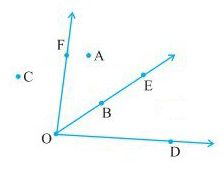
An angle divides the region into three divisions, which are 'arms of an angle', 'interior of an angle', and 'exterior of an angle'. In the given diagram, name the point(s) in the exterior of .
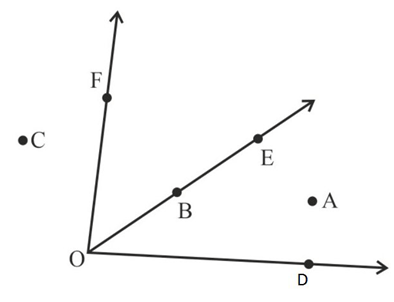
An angle divides the region into three divisions, which are 'arms of an angle', 'interior of an angle', and 'exterior of an angle'. In the given diagram, name the point(s) in the interior of .
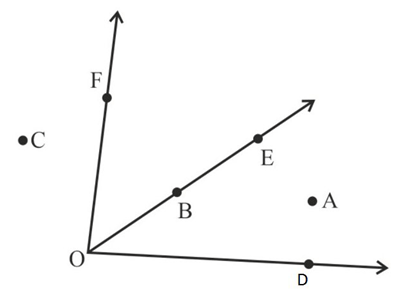
| Letter | Number of right angles | Number of acute angles | Number of obtuse angles |
| H |
| Letter | Number of right angles | Number of acute angles | Number of obtuse angles |
| T |
| Letter | Number of right angles | Number of acute angles | Number of obtuse angles |
| A |
| Letter | Number of right angles | Number of acute angles | Number of obtuse angles |
| M |
Observe the adjacent figure and fill in the blank.
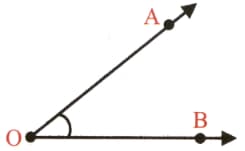
Angle is ______.
Identify the angles in the picture shown below and write their names in the table given below.
| S.No. | Angle | Vertex | Sides or arms |
Given below are figure made out of match sticks. All the figures depict angles.

How many sticks are required for one angle or a figure?
Select the figure that shows the smallest angle.
A complete angle is equal to .
The angle given is a reflex angle.
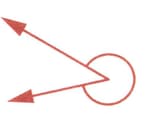
 This angle can be called .
This angle can be called .
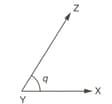
In the given angle,
Name the vertex of the angle.
Ray AB has taken a turn away from Ray BC. What quantity measures the amount of turn between the 2 rays?
A protractor has two scales. While measuring or constructing an angle with the help of a protractor, choose the scale the mark of which fails on the arm of the angle.

